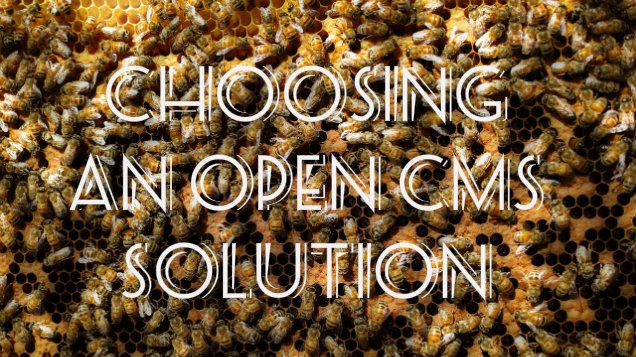
Choosing An Open Source Content Management System: Looking Beyond Its Features
A straightforward approach often used when selecting a content management system is to check for a good fit between the CMS capabilities and one’s requirements. A closer fit means less modification and development work is required. Therefore, a careful evaluation of the capabilities of the CMS and perhaps its source code might be done by the individual or business making the assessment. While this approach is sensible for choosing a CMS, it is incomplete.
The reason is that the long term worth of any open source CMS is only as good as the community that supports it. Here are two important considerations when evaluating an open source community:
Its Maturity
A new CMS means that the community supporting it is small. The implications of this are that the talent pool is smaller which means that the CMS will be lacking in a number of useful features simply because there aren’t enough people with the time to develop them. In addition, the code may be inefficient because exceptional talent is statistically rare. Therefore a large pool is more likely to have this kind of talent.
Another problem with a CMS with little history is that insufficient time has elapsed for users to identify flaws and shortcomings. Mature content management systems have had plenty of time to undergo multiple revisions to iron out bugs and security weaknesses.
There is also no guarantee that the community will grow and thrive in the future since it hasn’t reached its critical mass yet. If the community dies off, then you are left with a stale and ultimately obsolete CMS that can’t adapt to the evolving nature of the online world.
Its Activity
Activity is indicated by the size of the community and the growth rate of add-on modules and other accessories. Another indicator of high activity is the existence of lots of businesses that specialize in providing goods and services related to the content management system. Activity is important because it means that the CMS has a future. It also means that improvements in features and security happen quickly in response to the needs of its users.
A healthy business ecosystem surrounding the CMS increases the talent pool and allows for customized goods and services that specifically meet your needs. Because the open source community does its work voluntarily, it means that it is accountable to no one and isn’t obligated to provide support to the users of its CMS. This deficit is filled by the businesses that specialize in the CMS.
For more information about content management systems and CMS hosting, contact us.
Photo Source / Desaturated from original
